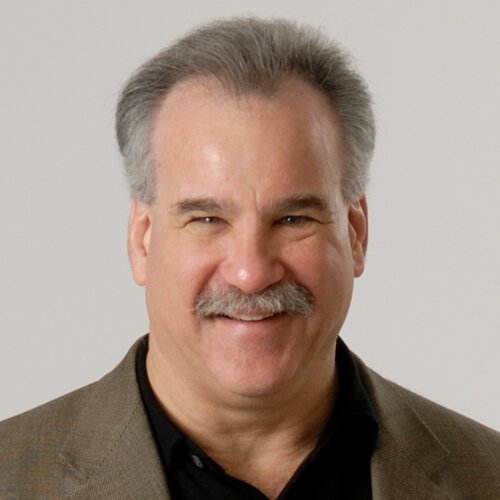
Contact Information
University of Illinois
245 RAL, Box 18-5
600 South Mathews Avenue
Urbana, IL 61801
Research Areas
Additional Campus Affiliations
CAS Professor, Center for Advanced Study
Biography
Scott E. Denmark was born in Lynbrook, NY in 1953. He obtained a S. B. from the Massachusetts Institute of Technology in 1975 and a D.Sc. Tech. from the ETH-Zürich under the direction of Albert Eschenmoser in 1980. That same year he was appointed as assistant professor at the University of Illinois and since 1991 has been the Reynold C. Fuson Professor of Chemistry.
Professor Denmark has won a number of honors including the Pedler and Robert Robinson Medals (RSC), the Aldrich Award for Creative Work in Synthetic Organic Chemistry, Brown Award for Creative Research in Synthetic Methods, the F. S. Kipping Award in Silicon Chemistry (ACS), the Prelog Medal, Noyori Prize and the Paracelsus Prize. He is currently on the Board of Directors of Organic Reactions and Organic Syntheses and serves on the Editorial Advisory Boards of the Journal of the American Chemical Society, the Journal of Organic Chemistry and Organic Letters.
Research Interests
synthetic organic chemistry; invention of new organic reactions (organoelement chemistry); elucidation of structure-reactivity-selectivity relationships (mechanistic studies); total synthesis of natural products (alkaloids, polypropionates, polyenes, C-aryl glycosides)
Research Description
The research in my group is primarily involved with the invention of new synthetic reactions, on the origin of stereocontrol in fundamental carbon-carbon and carbon-heteroatom bond forming reactions, and in the application of these developments to the synthesis of complex molecular structures. A continuing theme of the work in these laboratories is the relationship between structure, reactivity and stereoselectivity in a variety of organo-element systems, particularly, silicon, phosphorus, tin, sulfur and lithium containing compounds. In recent years this interest has focused on palladium catalyzed cross-coupling reactions with organofunctional silicon compounds, asymmetric catalysis of carbonyl and olefin addition reactions and chiral Lewis base activation of Lewis acids. In addition my research program encompasses the development and application of tandem heterodiene cycloadditions for the synthesis of complex natural (alkaloids) and unnatural (fenestranes) nitrogen containing compounds. In recent years the tandem cycloaddition has been employed as a discovery engine for the investigation of structure/selectivity-reactivity relationships in asymmetric phase transfer catalysis with chiral quaternary ammonium ions. In recent years, my group has investigated theuse of chemoinformatics and machine learning to identify and optimize catalystsfor a variety of organic and organometallic reactions.
My group maintains a long-standing interest in catalytic enantioselective reactions with organozinc and other organometallic reagents.
Honors & Awards
Paracelsus Prize (Swiss Chemical Society), 2020
Ryoji Noyori Prize (Society of Synthetic Organic Chemistry, Japan), 2019
EROS 2019 Best Reagent of the Year Award, 2019
The Journal of Organic Chemistry Outstanding Publication of the Year Award Lectureship, 2019
National Academy of Sciences, Member, 2018
American Academy of Arts and Sciences, Member, 2017
Harry and Carol Mosher Award of the Santa Clara Section of the ACS, 2014
Frederic Stanley Kipping Award in Silicon Chemistry (ACS), 2014
ISHC Senior Award in Heterocyclic Chemistry, 2011
Fellow, American Chemical Society, 2009 (inaugural year)
Herbert C. Brown Award for Creative Research in Synthetic Methods (ACS), 2009
Robert Robinson Medal and Lectureship (Royal Society of Chemistry) 2008
Prelog Medal (ETH-Zürich, Switzerland), 2007
Recent Publications
Bock, M. J., & Denmark, S. E. (Accepted/In press). Rapid, Homogenous, B-Alkyl Suzuki-Miyaura Cross-Coupling of Boronic Esters. Journal of Organic Chemistry. https://doi.org/10.1021/acs.joc.4c00089
Burke, M. D., Denmark, S. E., Diao, Y., Han, J., Switzky, R., & Zhao, H. (2024). Molecule Maker Lab Institute: Accelerating, advancing, and democratizing molecular innovation. AI Magazine, 45(1), 117-123. https://doi.org/10.1002/aaai.12154
Cunningham, C. C., Panger, J. L., Lupi, M., & Denmark, S. E. (2024). Organoselenium-Catalyzed Enantioselective Synthesis of 2-Oxazolidinones from Alkenes. Organic Letters, 26(31), 6703-6708. https://doi.org/10.1021/acs.orglett.4c02377
Olen, C. L., Zahrt, A. F., Reilly, S. W., Schultz, D., Emerson, K., Candito, D., Wang, X., Strotman, N. A., & Denmark, S. E. (2024). Chemoinformatic Catalyst Selection Methods for the Optimization of Copper-Bis(oxazoline)-Mediated, Asymmetric, Vinylogous Mukaiyama Aldol Reactions. ACS Catalysis, 14(4), 2642-2655. https://doi.org/10.1021/acscatal.3c05903
Schnitzer, T., Schnurr, M., Zahrt, A. F., Sakhaee, N., Denmark, S. E., & Wennemers, H. (2024). Machine Learning to Develop Peptide Catalysts─Successes, Limitations, and Opportunities. ACS Central Science, 10(2), 367-373. https://doi.org/10.1021/acscentsci.3c01284